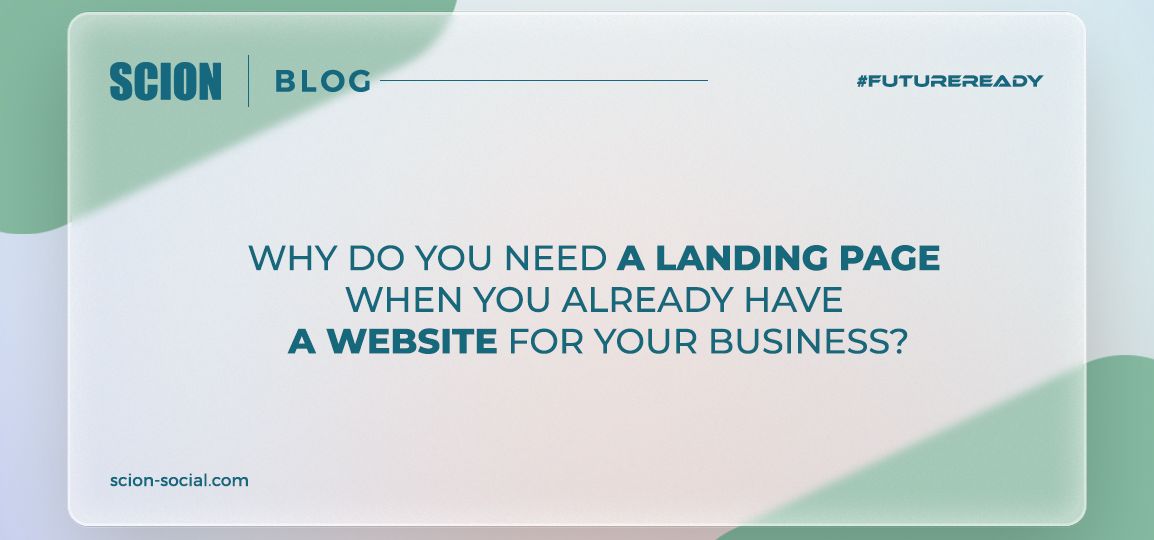
Last Updated: Dec 12, 2024
Imagine walking into a store where you meet a friendly salesperson who knows all about their products, while a receptionist greets you at the door, ready to help with your inquiries.
In the digital world, your website serves a similar role as the receptionist – it’s the face of your business, giving visitors an overview of what you offer. But what about landing pages? They act like the salesperson who is focused on guiding potential customers towards specific actions.
For instance, if you’re running a promotion, a dedicated landing page can highlight the offer, provide relevant details, and encourage visitors to sign up or make a purchase. Each has its unique purpose, but together they create a seamless experience for your audience.
Let’s break down the differences between a website and a landing page:
Landing Page
- Single-minded focus: Designed to achieve one specific goal, like a sale, sign-up, or download.
- Minimal distractions: No clutter or unnecessary links.
- Clear call-to-action: A prominent button or link that guides the visitor to take the desired action.
- Targeted messaging: Tailored to a specific audience and their needs.
Website
- Broader scope: Contains multiple pages with various information, such as products, services, about us, contact us, etc.
- Multiple goals: Can serve various purposes, like branding, lead generation, customer service, and sales.
- Complex navigation: A menu or navigation bar to help visitors explore different sections of the site.
- Diverse content: Includes blog posts, articles, videos, and other multimedia content.
In essence, a landing page is like a focused salesperson, guiding the customer to a specific product or service. Whereas, a website is like a retail store, offering a variety of products and information.

The Role of a Landing Page
A landing page is a separate web page from your main website, created for a specific purpose. This could be to:
- Drive conversions: Guide visitors toward a specific action.
- Generate leads: Capture contact information.
- Build brand awareness: Introduce products, services, or brands.
- Promote products: Showcase specific offerings.
- A/B test: Optimize design and copy.
- Track performance: Measure effectiveness.
The major difference between a website and landing page is that the latter is designed with a singular purpose in mind: conversions.
Every element on the page, from the headline to the form submission button, is designed to persuade visitors to take action.
Why You Absolutely Need a Landing Page
Let’s talk about why having a landing page is such a game changer for your online presence:
1. Focus on Conversions
The main benefit of a high-converting landing page is its ability to increase conversions. Unlike your main website, which can be filled with distractions—think links to your home page, services, about section, privacy policy, and all those social links—a landing page is all about one focused message.
When visitors arrive, they can concentrate solely on what you want them to do, resulting in higher conversion rates.
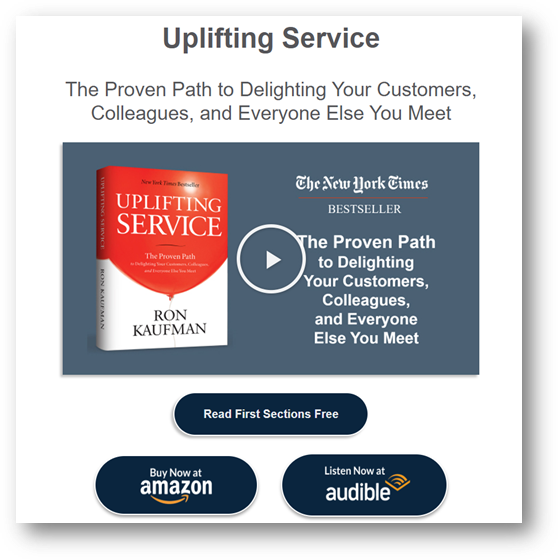
2. Tailor the Message to Your Visitors
Every visitor to your site comes with their own unique needs and intentions. They might be at different stages of your sales funnel or interested in various products. With a landing page, you have the freedom to customize the entire experience for specific audiences or announcements.
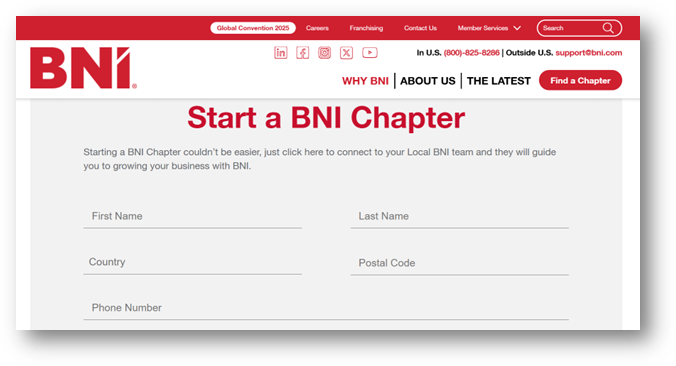
Here’s an example from the BNI® website, the world’s largest networking organization. This contains all the necessary information that ultimately encourages readers to take specific action, i.e., to start a BNI Chapter.
3. Boost Your SEO Game
Landing pages can also help improve your SEO efforts by allowing you to optimize for specific buyer-intent keywords that wouldn’t fit on your home page. Instead of trying to compete for every term in your niche, you can create targeted pages to rank for those specific keywords, making it easier for the right audience to find you.
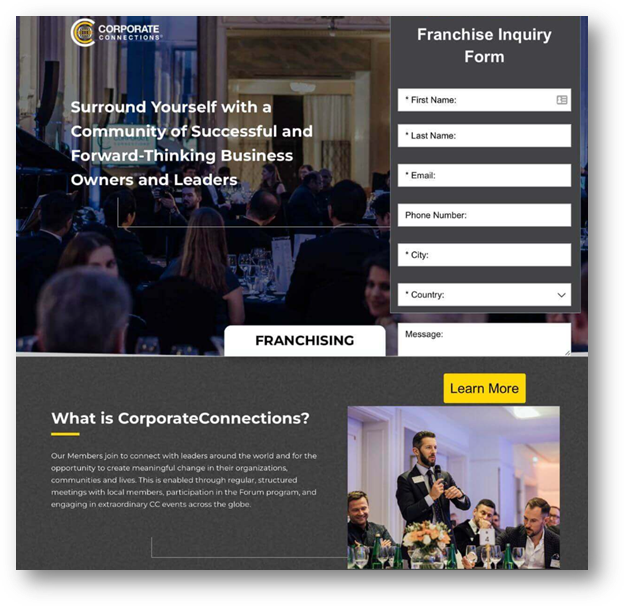
4. Cost-Effective and Targeted Advertising
When you run ads that lead to your home page, you’re likely to see lower conversions. But if you’re using multiple landing pages, you can create targeted ads that resonate more with specific audiences. This makes scaling your advertising efforts—and your business—a lot simpler.
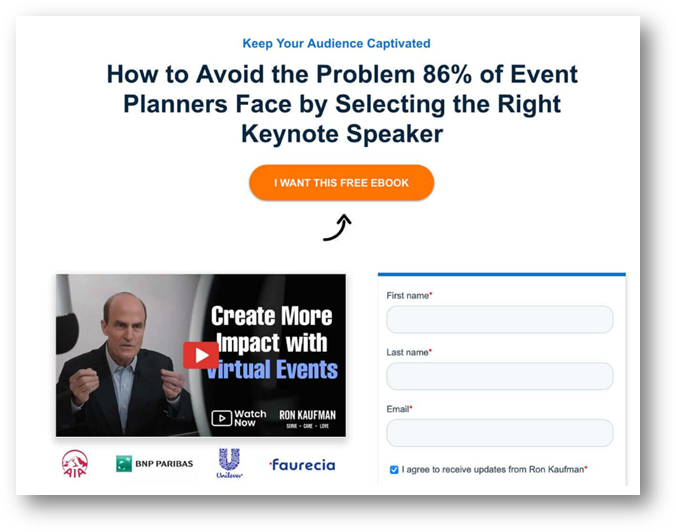
5. Gather Valuable Data
When users visit your main site, it can be tough to know what interests them most. But with a landing page, you get valuable insights into which specific content or offers caught their attention. This data is golden when it comes to remarketing, allowing you to craft personalized messages for retargeting ads or emails.
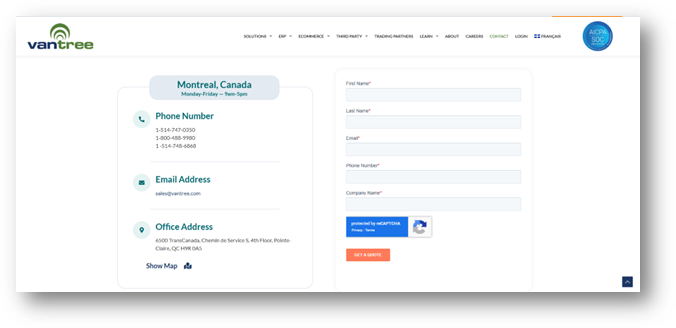
Final Thoughts
To recap, here are some of the points discussed in this article:
- Landing pages and websites both play a unique role
- Websites are an overview. Landing pages are tailored to the visitor
- Conversions are higher on landing pages because they are more specific
- SEO value and being able to be more specific in the buyer terms you are targeting
In a nutshell, landing pages are incredibly powerful tools that can enhance your marketing strategy, drive higher conversions, and help you connect more effectively with your audience. If you haven’t started using them yet, now is the perfect time!
For more information on how to boost your digital presence and market like a pro like this, check out our other blogs. Or, if you want professional help with your business, you can schedule a call with us here.
FAQs
While it’s possible to create a standalone landing page without a full-fledged website, having a website provides several advantages:
- Brand Consistency: A website establishes your brand identity and ensures consistency across all your online platforms, including your landing pages.
- Credibility: A well-designed website with informative content can enhance your credibility and trustworthiness.
- SEO Benefits: A website can improve your search engine rankings, driving more organic traffic to your landing pages.
- Additional Information: You can provide additional information about your products or services on your website, directing visitors to relevant landing pages.
- Lead Generation: A website can serve as a central hub for lead generation, capturing visitor information through forms and contact pages.
Yes, you can and often should have landing pages even if you have a website. Landing pages are highly targeted and optimized for specific goals, such as lead generation or product promotion. They provide a focused experience for visitors and can significantly improve conversion rates.
The primary purpose of a landing page is to convert visitors into customers or leads. It achieves this by:
- Single-Minded Focus: Landing pages have a singular goal, eliminating distractions and guiding visitors towards a specific action.
- Strong Call-to-Action (CTA): A prominent CTA encourages visitors to take the desired action, whether it’s making a purchase, signing up for a newsletter, or downloading a resource.
- Optimized Content: Landing pages are tailored to specific keywords and audience segments, ensuring maximum relevance and engagement.
Key elements of an effective landing page include:
- Compelling Headline: A clear and concise headline that grabs attention and conveys the value proposition.
- Engaging Visuals: High-quality images or videos that enhance the message and appeal to the target audience.
- Persuasive Copy: Well-written copy that explains the benefits and addresses potential objections.
- Strong Call-to-Action (CTA): A clear and prominent CTA that prompts visitors to take action.
- Trust Signals: Testimonials, logos of reputable partners, or security badges to build trust.
- Simple Form: A streamlined form that collects essential information without overwhelming visitors.
- Mobile-Friendliness: A responsive design that adapts to different screen sizes.
The two main types of landing pages are:
- Lead Generation Landing Pages: Designed to capture visitor information through a form, typically in exchange for a valuable offer like an ebook or webinar.
- Click-Through Landing Pages: Focused on driving traffic to another website or specific product page.
You should consider using a landing page in the following scenarios:
- Launching a new product or service: Create a dedicated landing page to generate buzz and drive sign-ups or pre-orders.
- Running a time-limited promotion or offer: Use a landing page to highlight the urgency and exclusivity of the deal.
- Promoting a specific campaign or event: Create a landing page to provide detailed information and encourage registrations or ticket purchases.
- Generating leads for your business: Design a landing page with a lead capture form to collect potential customer information.
Yes, you can create a standalone landing page without a full website. However, having a website offers several benefits. If you choose to create a standalone landing page, you’ll need to use a landing page builder or a website platform that allows you to create single-page websites.

